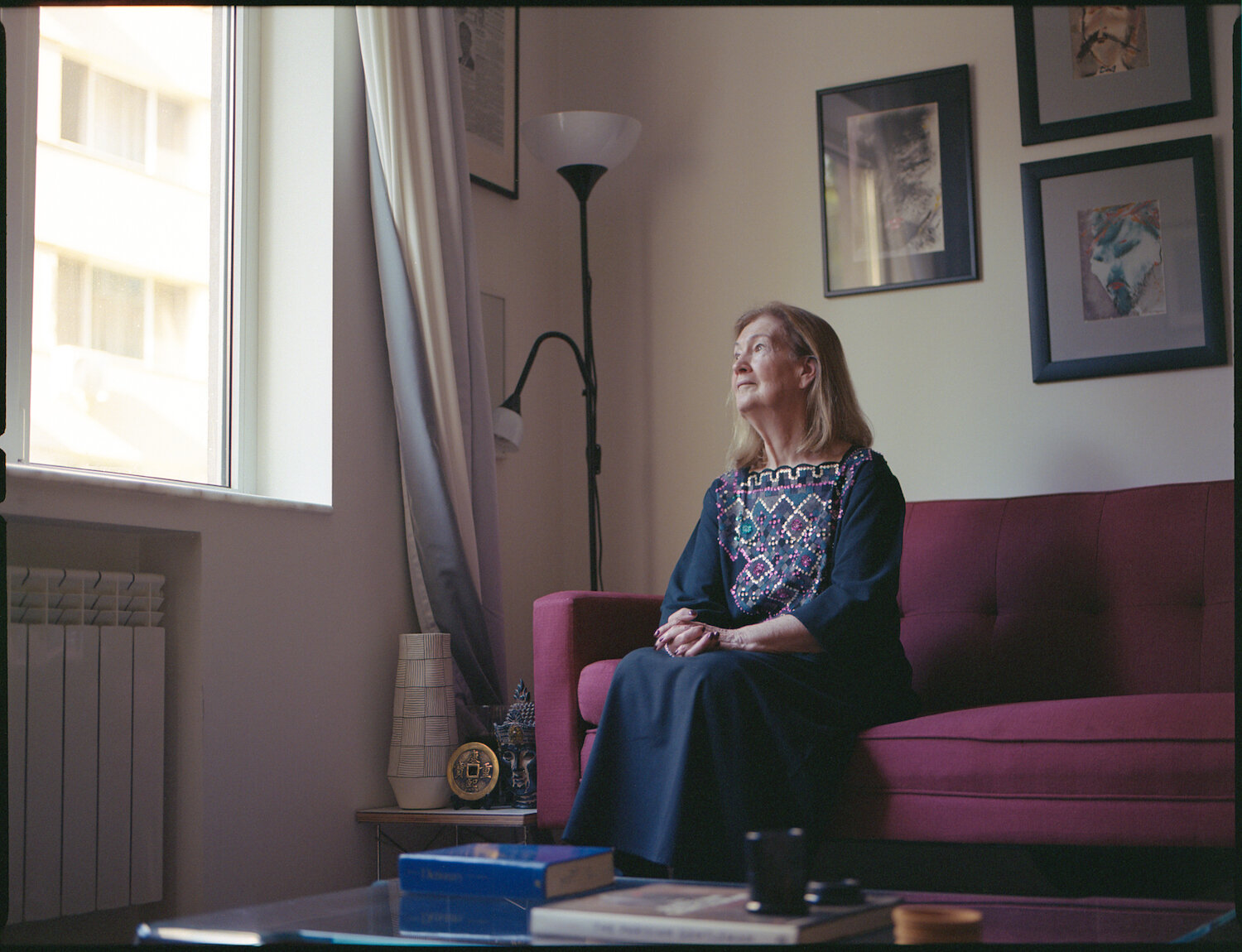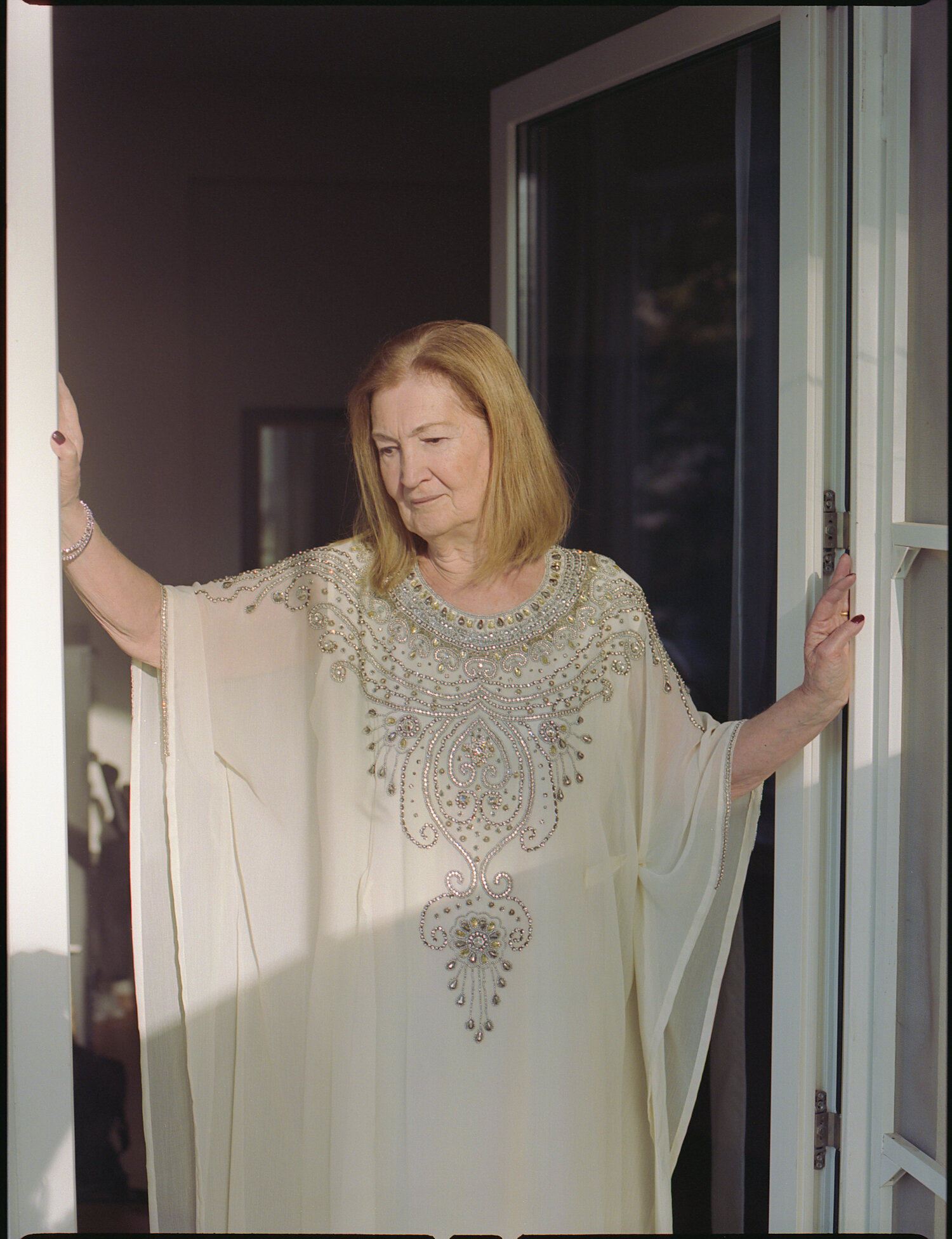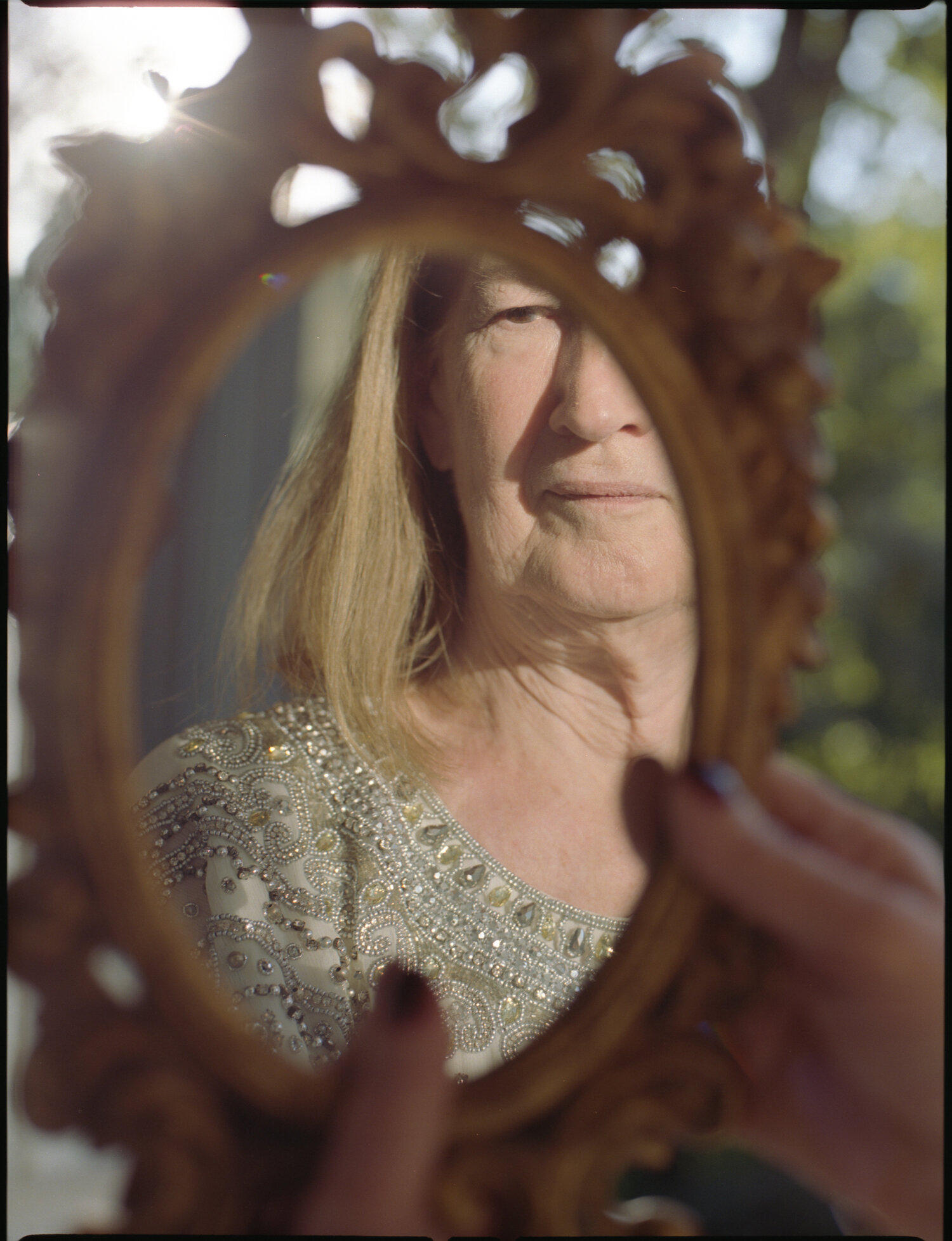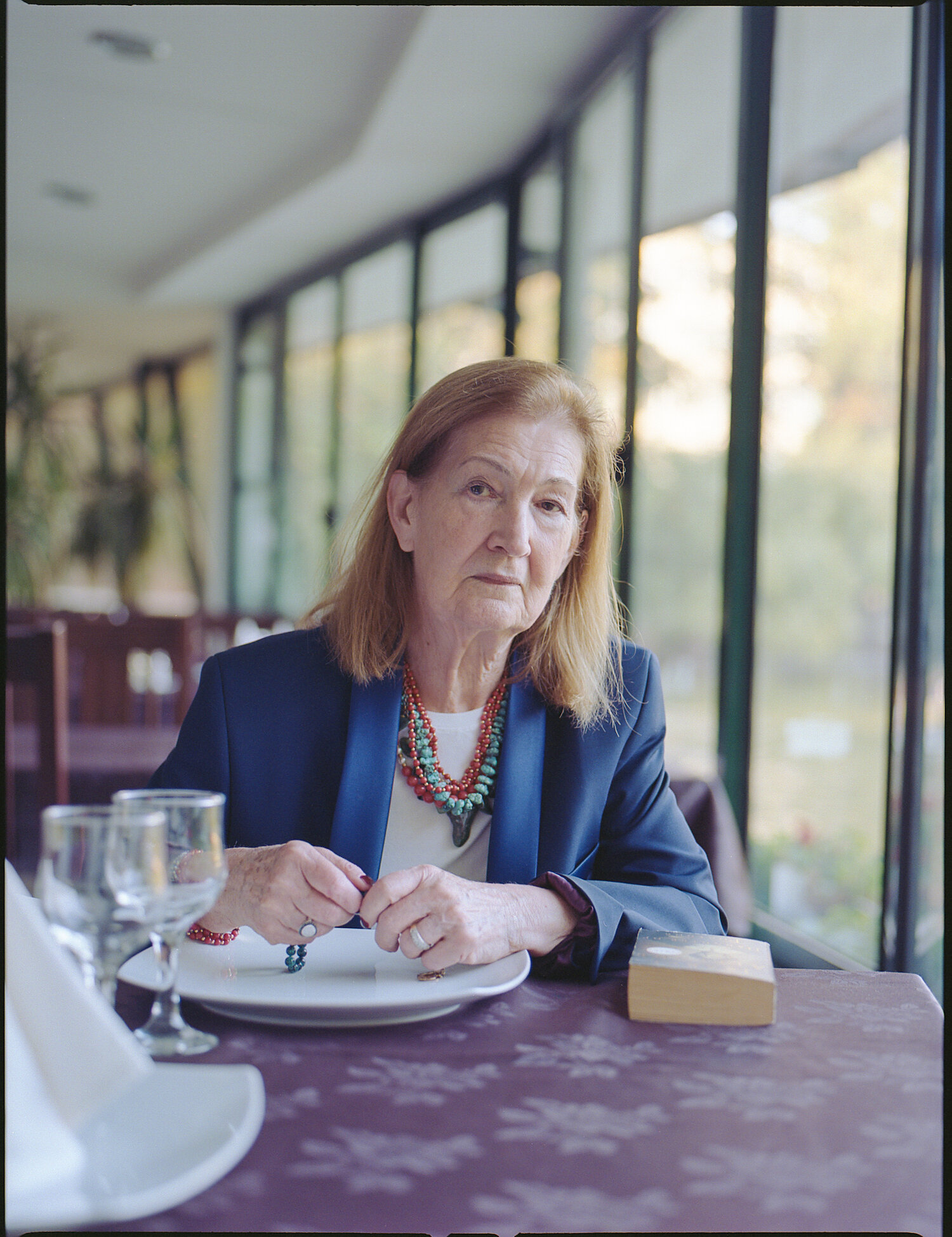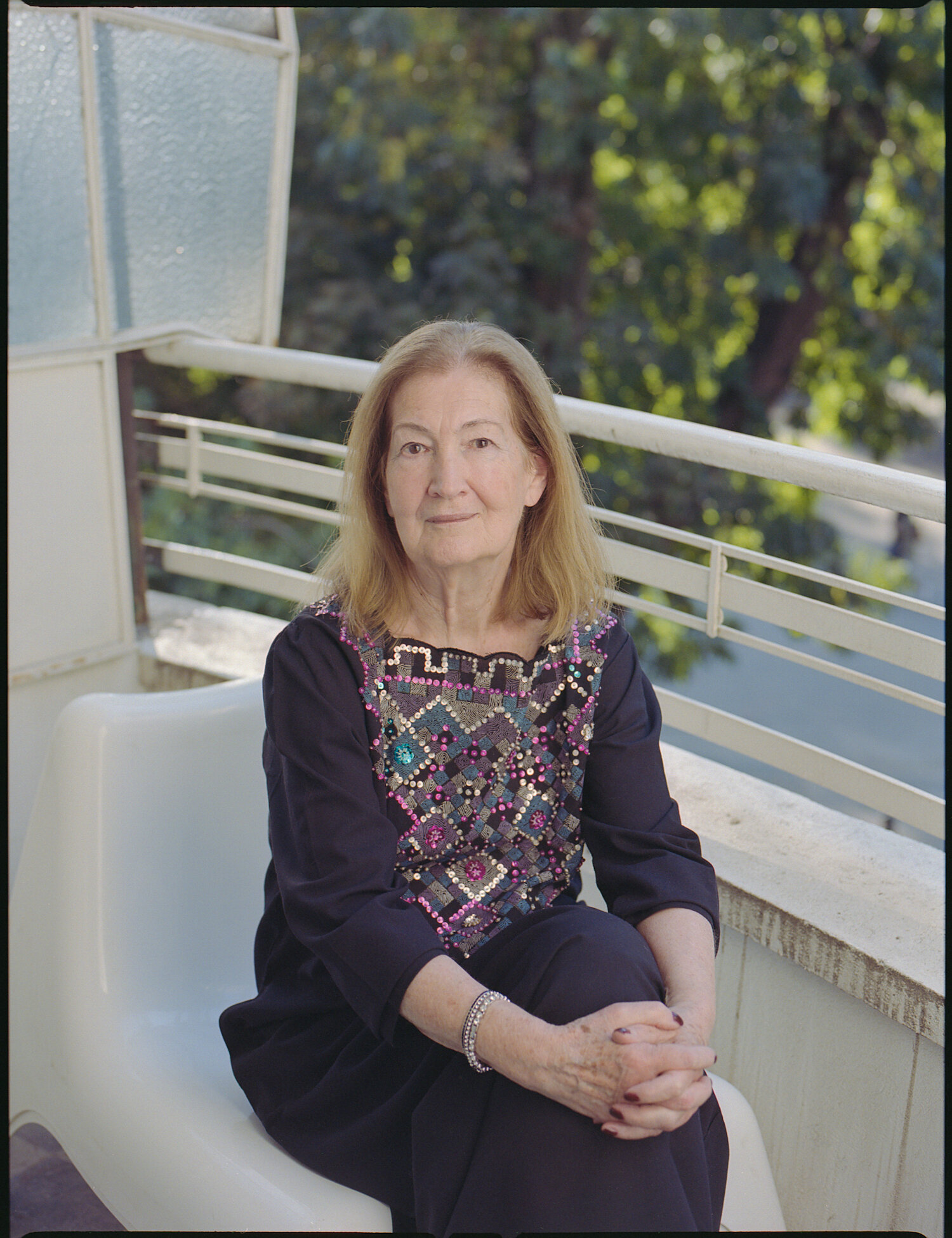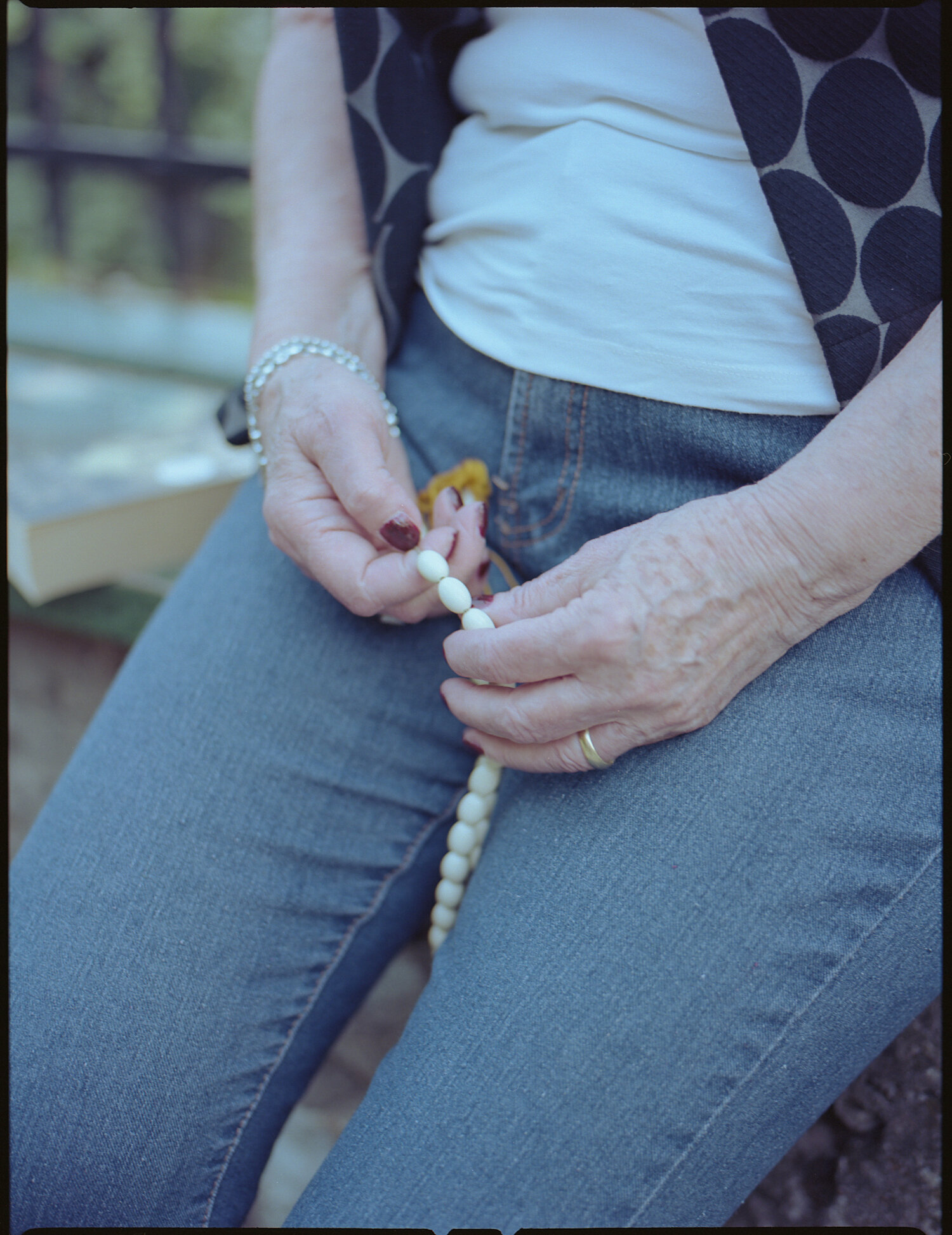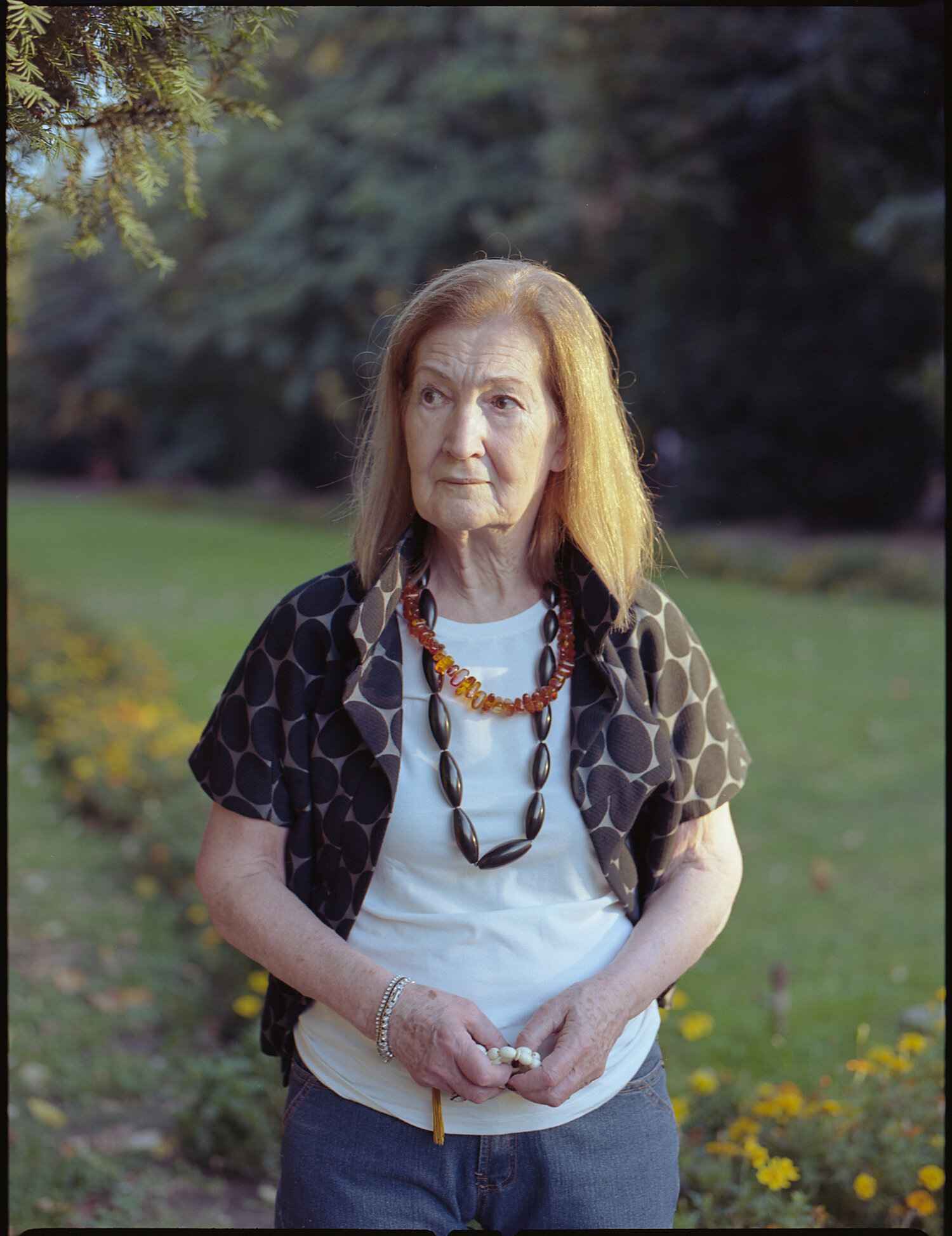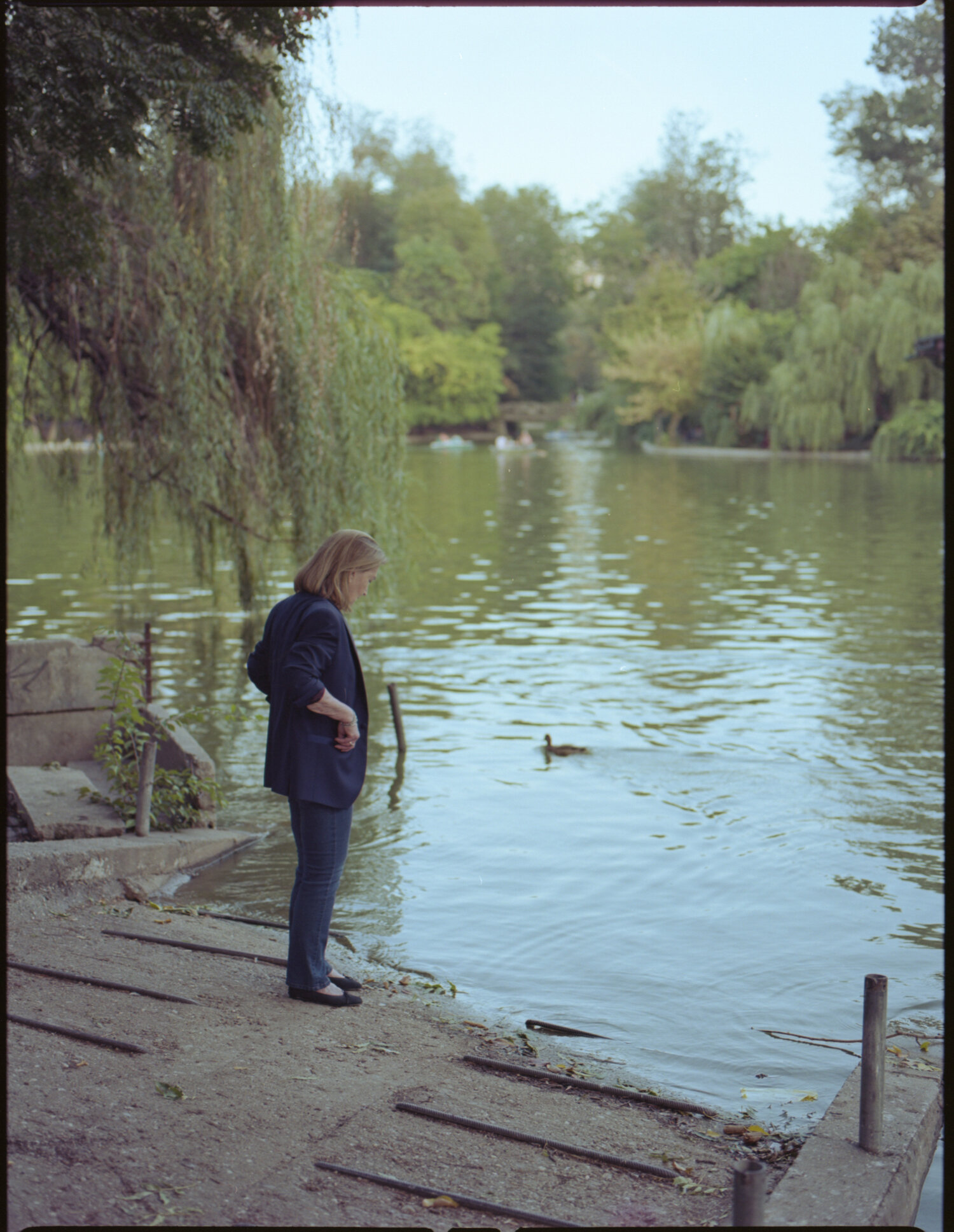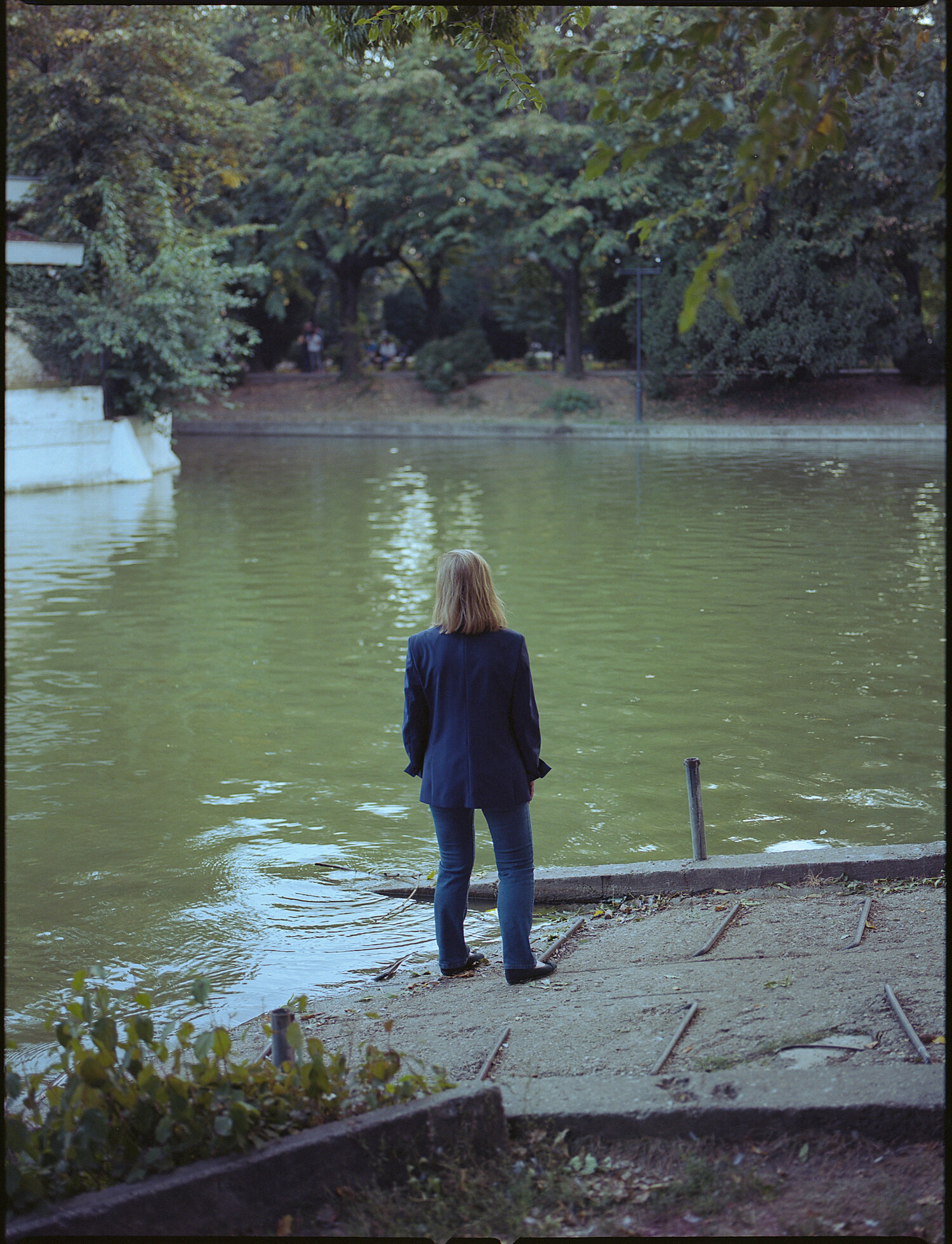SUZANNE ALBITAR - "I WAS BLIND"
About our interviews: we don’t ask questions, we listen to stories.
Interview and photographs: Andrei Runcanu @andreiruncanu
Styling: Omar Albitar @omar_alexandre
“I changed 27 houses” she said and as she mentioned the cities she lived in, “Angers, Paris, London, Bern, Beirut, Baghdad…” it sounded like those rare and firm ticks you hear before you reach the highest point in a rollercoaster ride. Tick. Tick. Tick. Pause. Freefall.
You rush down full speed, you feel the fall in your stomach, short of breath, you go up then down again, sometimes slowly, sometimes fast. The ride gives you time to reflect on the sensations you just felt, then surprises you with another sudden change of direction. Sometimes it turns you upside down, sometimes you’re on top of the world looking down: oh, the view, the splendour! But you know the ride ends in the same point where you started, you can’t be up there forever. You will have to head down pretty soon. Will it be a sudden fall or an easy one? I had these rollercoaster feelings listening to Suzanne unfold a story that was almost told by itself.
We were preparing for the photo session for the interview in a sunny autumn day. We had no intention of doing the interview yet, just small talking in a little balcony that faces the Cismigiu park when, talking about homes, she said she changed 27 houses. And off we went in this story that counted them and made Suzanne revisit her whole life in front of me. Suzanne Albitar, a French young woman from Angers that fell madly in love with an ambitious secret agent. By 19 she had already lived in Angers, Paris, London, Bern and was back in Paris, working at the Alliance Francaise, teaching foreigners how to teach French to other foreigners. She had already tried different jobs, but nothing was fulfilling her. She was around 23 in October 1972 when, where else other than a cafeteria, she met this mysterious young man that she exchanged some words with. Three weeks later the same man was in the same cafeteria. He introduced himself as Jordanian and they started talking. “I was blind. He made me blind. His views, his character” says Suzanne about this fascinating man that she soon found out was actually an undercover Palestinian that didn’t even have a passport. His name was Fouad Al Bitar.
Their adventure began. She started hiding him in her small flat. He had great plans for Palestine and she was so fascinated by him, that she did everything to help him, even giving him money when needed. They were hiding all the time, always having the feeling that they were followed, but their love was growing stronger. Only half a year into their relationship and he had to disappear suddenly and leave to Baghdad. Soon she followed him there and one week later they got married at the City Hall with two random people as witnesses. He organised an important Palestinian office in Baghdad and then went on to do the same in Beirut. She followed along, but through a different path, he was still travelling undercover and had to take the road through Syria. Talking about their relationship during that time, she says she was “crazy in love, no limit!” She describes him as “very sure of himself, very nice with people.” He charmed her with “his ambition, his power, his will to fight for his people. I jumped in his dreams.”
After one year in the Middle East they moved to Dar es Salaam, Tanzania. “I was very happy, I had a car, our life changed. We had a flag on the house, a Palestinian flag. I was proud, I judged him right. And I was happy.” For seven years, from 1974 till 1981 they lived the best life in Tanzania, she was always driving to the beach, feeling safer than ever.
In 1981 they moved to Beirut. They already had two young boys. She was there when the 1982 Lebanon War broke out. Fouad was away in Helsinki, trying to open an office there, when bombs started falling. “They were bombarding Beirut everywhere. They [the people in the Palestinian office] told me <<You have to get out>>, I said <<Where to get out?>> I was alone in Beirut. And there was no way. No plane, no airport. Only by the sea. And they tried to find something and they found a last boat. So we had to cross the whole city from West Beirut to East Beirut to reach the port. And they were checking everywhere. The Israelis, the Syrians, everybody was checking everybody. So they found a taxi and I hid myself and my two boys in the car with a journalist. And the journalist showed his card and said <<She’s with me, we are journalists.>> And we passed the control line, got to the port and we left. We were at sea the whole night. And early morning we saw the lights on the shore. It was the UN, but where could we be? I was asking God << Please, not Israel!>> They would put us directly in jail. But it was Cyprus.”
There’s this funny story that Suzanne remembers about settling in Cyprus. They found a house in Nicosia that they could organise as the Palestinian office where they would also live. “It was near the Hilton Hotel, a big house with a lot of rooms and a garden. A marvellous house. I took a month to organise all the house, carpets, furniture, everything. After one month he [Fouad, her husband] came and said <<You know, in front of this hotel it’s bad for me, I cannot stay there.>> And we had to change the house. It was not safe near the hotel. He didn’t think of this from the beginning so we had to move. Sometimes he was just like a kid.” Their third boy was born in Cyprus.
In Cyprus, Fouad’s office was very important and his ambition grew stronger. “He thought that he could change the way all the Palestinians lived, he thought that he could make a miracle, like Arafat. He was convinced that he could do a miracle! The office in Cyprus gave him so much power that it changed the way he was thinking, he became different.” So different that he secretly married another woman, a relative of Yasser Arafat’s, bringing him closer to the saviour of Palestinians. When Suzanne found out she fell into a long depression, crying all the time. They stayed for a while in Rome, then they moved to Athens and then, in 1990 Fouad became the Palestinian ambassador of Romania. “Diplomats were adored in Romania” says Suzanne, “they had so many privileges.” But she was depressed in Greece, while Fouad was living in Romania and still having another wife. From 1995 to 2005 she stays 4 years in Romania, then 1 year in Amman, then another 5 in Romania until Fouad finally retires in 2005, sick from an old cancer and forgotten by his people. After the death of Yasser Arafat in 2004, Fouad’s relationships with the power changed. He was not friends with Abu Mazen and he was left out and asked to retire. “He was sad, like a kid” she says.
They moved to Amman and in 2009 Fouad died. “In the morning going to the hospital he had an open heart. He said <<So sorry, Suzanne, for what I did to you, for the life I gave you, bad, difficult life.>> I said <<Yes, you did>> and I threw a kitchen towel at him. And for the day after, and the week after, he couldn’t talk, he had tubes everywhere. He could not explain nothing, I could not explain nothing. We stopped like this. That’s it.” She takes a long pause like her whole life could fill that pause. “I was so much in love with him. Blind. Told you many times, blind. I was ready to do anything. To accept his family, to accept the habits. Anything.”
Suzanne now lives in Romania with one of her sons and says she loves it here. She knows the people, her sons are here and in the end “whe stayed here, where to go”? What attracted me to her story in the first place was the fact that she didn’t throw away all her husband’s clothes. Since she was young she modified his clothes to make them smaller so that she could wear them, too. Fancy suits and shirts that her husband did not use anymore, she would wear. And sometimes she still does, whether it’s a family reunion or a normal day. Oh, and the red chair: “He bought this chair for the house in Cyprus, the one that we had to change. When I finished decorating the bedroom, white wood, white everything, it was too white. So he bought a chair, a red chair. And then when we left we put all the stuff in a container, except this red chair. And wherever we went, the chair would come. Everywhere. Now I have it in my bedroom, I can’t pass because of it. We moved many times and I don’t know how the chair came. Damn chair.”
